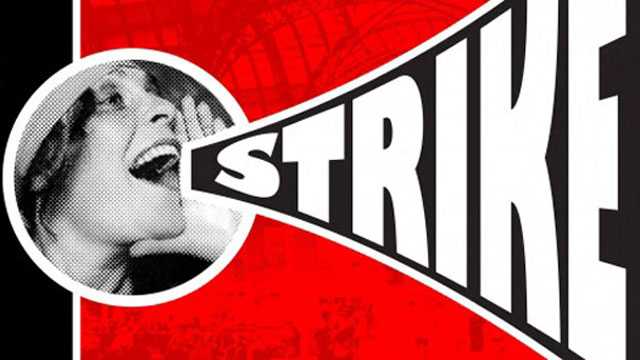Natasha Lennard has been covering Occupy Wall Street since its first dramatic days at Zuccotti Park. She began as a freelancer for The New York Times. After it was revealed Lennard was personally and publicly sympathetic to the cause, she left the Times and picked up her pen for Salon. We spoke to Lennard about her thoughts on Occupy’s next act — what she calls a ‘spring resurgence’ — as well as the nature of ‘objective reporting’.
Lauren Feeney: What does the Occupy movement, which packed up its tents for the winter (largely by force, and with some exceptions), have planned for spring?
Natasha Lennard: The huge mass of different Occupy groups never stopped meeting and planning throughout the winter — even if Occupy’s public presence diminished. Much of this planning has been about a spring resurgence, recognizing the importance of being out on the streets, and that this can only really kick off in reasonable weather.
The big focus point for a lot of people is May Day. A general strike has been called by a host of Occupy groups hoping to use the date as an anchor to build momentum and get people excited. The idea of a general strike is historically resonant, but needs radical rethinking to appeal in our current socioeconomic context. Occupy creates an amazing space for re-imagining these political notions.
Feeney: Aren’t general strikes illegal in the U.S.?
It’s illegal for unions to politically strike. The Taft-Hartley Act of 1947 made that so, following a year of six general strikes in the U.S. in 1946. Many labor organizers are involved with planning for May Day and are working on how best to deal with the risks posed by a call for general strike. But the vast majority of workers are not unionized. The challenge is to frame ‘general strike’ in a way that allows room for everyone to strike out, generally — even precarious workers and the unemployed.
Feeney: General strikes still make headlines in other parts of the world. Greece, for example. That’s a country of only 11 million where general strikes can bring as many as 100,000 people into the streets. You write that the proposed May Day strike has 12,000 promised attendees on Facebook. Is that enough?
Lennard: One Facebook event is hardly a telling metric — I just thought it worth mentioning that months in advance, considerable interest is building. Immigrant justice groups (who have organized on May Day in the U.S. since 2006), labor groups, anarchists, activists and so many others are coming together to work on this and build capacity, so there’s good reason to think many tens of thousands of people will hit the streets that day. That’s the hope anyway.
Feeney: The G8 and NATO are meeting in Chicago in May. Should we expect to see Occupy there?
Lennard: Without question — of course. Occupiers from around the country will go to the summit, as will summit-hopping anarchists from around the world. Summit protests are always explosive. With the added context of Occupy Wall Street, I can’t imagine what will happen in Chicago. Expect some heavy-handed policing, that’s for certain. I’m definitely going to cover it.
Feeney: In the early days of Occupy Wall Street, you were reporting on the movement for The New York Times. Then, the late Andrew Breitbart featured on his website a video of you praising Occupy in a panel discussion at a bookstore on New York’s Lower East Side. The Times issued a statement saying they wouldn’t use you in the future. Was this fair? Is there such a thing as objective reporting?
Lennard: There is a type of reporting, a certain style and format and practice, that is recognized as objective reporting. It’s entirely divorced from any philosophical considerations of what it means to claim objectivity — but that’s a long conversation. The New York Times was totally fair to me; the work I want to do is not compatible with their paradigm of journalism. I have a problem with that paradigm.
Feeney: How would you describe your current relationship to the Occupy movement?
Lennard: I’m involved in and committed to aspects of Occupy. And when I write, I write to incite change and challenge conventional wisdom — so it’s in solidarity with Occupy.
Feeney: Does this affect the reporting you do for Salon?
Lennard: Of course — it informs it.
Feeney: Salon just hired you on as a regular “Occupy” blogger — what does that say about their expectations for the movement?
Lennard: Salon CEO and founder David Talbot recently noted that when much of the mainstream media abandoned Occupy coverage, Salon kept delving into it because it’s “the most important social movement of our day.” I think when spring comes around and Occupy really kicks off again, the publications who did not leave it for dead will be proven right.



